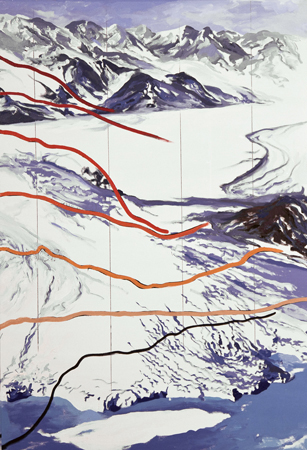Numerous scientific authorities document the extent, causes, and impacts of climate change and the importance of responding. Some of the most significant sources of information are:
U.S.:
The National Academy of Sciences is the nation’s foremost scientific authority. President Lincoln and Congress created the Academy in 1863 to provide the government with independent scientific advice. As government demand for advice on policy increased, the Academy expanded to include the National Research Council, National Academy of Engineering, and Institute of Medicine – collectively, 6,000 scientists elected by the Academy for distinguished achievement and serving as volunteers.
The Academy’s operating arm is the National Research Council (NRC), which conducts most studies. Through the NRC, the Academy forms study committees, which include both Academy members and other scientists with specialized expertise. The Academy supervises the study outline, composition of the study committee, and content of the report to ensure scientific validity.
The Academy released its first report on climate change in the late 1980s. In 2001, the NRC published Climate Change Science: An Analysis of Some Key Questions, which unequivocally concluded: “Greenhouse gases are accumulating in Earth’s atmosphere as a result of human activities, causing surface air temperatures and subsurface ocean temperatures to rise.”
Directed by Congress to address solutions to climate change, the Academy launched the America’s Climate Choices initiative, which surveyed the increasingly stronger scientific evidence of human influence on climate change and resulted in 5 in-depth reports:
- Advancing the Science of Climate Change
- Limiting the Magnitude of Climate Change
- Adapting to the Impacts of Climate Change
- Informing an Effective Response to Climate Change
- America’s Climate Choices
Government Agencies:
Many federal, state, tribal, and local agencies conduct extensive research on climate change and publish the results of their studies to provide easy public access to climate change data. A new open source website, climate.data.gov, operated by the U.S. General Services Administration offers access to data, tools, and resources for researchers, app builders, and designers of data visualizations. Currently in pilot phase, the site contains information on coastal flooding, sea level rise, and their impacts. Over time, the site will expand to address other significant climate change impacts, including risks to human health, the food supply, and energy infrastructure. Individual federal agencies also publish scientific data on climate change on their websites; to learn more see the Resources: Government page of this website.
International:
The IPCC (Intergovernmental Panel on Climate Change) is the leading international body for assessing climate change. Established in 1988 by the United Nations Environment Program and the World Meteorological Organization, the IPCC relies on thousands of scientists world-wide who volunteer, unpaid, to review, assess, and report on the most recent scientific, technical, environmental, social, and economic information on climate change. Participating governments – which now number 195 countries, including the United States – review and endorse the scientists’ reports, acknowledging their scientific authority.
The IPCC’s mission is to provide a clear, complete, and rigorously objective report of current climate knowledge so participating governments can develop realistic response strategies. The IPCC has produced four “Assessment Reports” – the first, in 1990; the most recent, in 2007. A fifth report is underway. The first part of this new report – the Working Group Report on physical science evidence of climate change – was published November, 2013. It concludes:
“Warming of the climate system is unequivocal, and since the 1950s, many of the observed changes are unprecedented over decades to millennia. The atmosphere and ocean have warmed, the amounts of snow and ice have diminished, sea level has risen, and the concentrations of greenhouse gases have increased… It is extremely likely that human influence has been the dominant cause of the observed warming since the mid-20th century.”
Two more Working Group Reports – one on impacts, adaptation, and vulnerability and another on mitigation – as well as a “Synthesis Report” are scheduled for publication in 2014.

